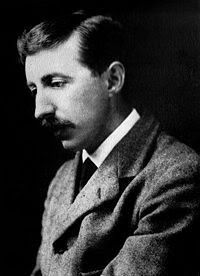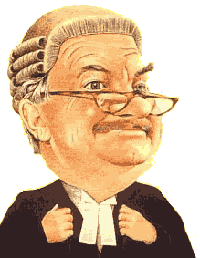Politics seem to create blind spots in people who might otherwise be quite reasonable. If my side has told lies, it was only in the pursuit of a higher truth. If your side tells lies, they are the lowest of the low. If my side uses foul language, it is a result of passion. If your side uses bad language, they are dangerous extremists. It can be like what Yes Minister used to call irregular verbs: My political views are informed, yours are mistaken, his are the blitherings of a dangerous idiot.
I have friends with whom I can discuss politics quite happily despite where we both might sit on the political spectrum. Others I avoid like the plague. They might be quite reasonable people otherwise but get them onto politics and the crazy come out. It seems that all those who differ in their opinion shouldn’t be allowed freedom of speech. They cannot imagine that anyone of any intelligence would think anything about any topic except what they believe, and those who do disagree with them are idiots at best, evil at worst. And if an election puts the other side into office, there is something very wrong with the system! They often call themselves liberals, but I may be displaying my own prejudices there.
Not that I think the terms ‘right-wing’ or ‘left-wing’ are particularly useful. If there is a political spectrum it is a line that runs from anarchy, where there is no government control at all, to totalitarianism, where government control is total, and the vast majority of Australians sit somewhere in the middle, as in any liberal democracy. Perhaps it is the small differences between modern political positions that make people want to treat them as gaping chasms, to be defended to the last. And the screaming battlefield is often online.
Comment sections on the Internet could cause one to despair about the future of the human race. What was envisioned as a modern-day equivalent of the Athenian forum, or the cut and thrust of the Algonquin table degenerates quickly into ill-considered, poorly spelt and ungrammatical name-calling and abuse. And some ideas are so stupid that they seem to require repeating. One is the idea that those on the opposite side of the political spectrum have no sense of humour, and only people who think the same way we do are funny. If any evidence against this idea (one hesitates to give it such a word) is actually needed, ladies and gentlemen, I give you Clive James and P J O’Rourke.
James is an Australian left-wing liberal and O’Rourke an American right-wing libertarian. Politically they couldn’t be further apart (in a liberal democracy kind of way) but they are two of the funniest, most intelligent writers going around. And as the interview on James' website shows, they also get along very well. (Scroll down about two thirds to find it.) Their books will always find a place on my shelf, and I read both not only for the content, but for what they can teach me about good writing. If this blog is anything it is an attempt for me to learn the art of the essay, and I am picky about my models.
They have their differences. James is serious writer who writes great gags, while O’Rourke is a humorist who makes serious points. James’ career is based on literary criticism, while O’Rourke is a political and social writer. I think it is the intelligence that they have brought to bear on their political, cultural and social viewpoints that gives them the confidence in those viewpoints that allows them to joke about them, rather than rage.
 The politics in PJ O’Rourke’s work is of course more obvious; it is his topic after all. And there are opinions in his work that would make a left-wing liberal gag. But, if that person is fair-minded, there are many that would make them laugh like drains. In his latest book, Don’t vote! It just encourages the bastards, O’Rourke attempts to summarise what he has learnt in forty years of political reporting. He finds that Government is too large, the importance of politics is overrated, and that the government is trying to control too many aspects of its citizens’ lives. O’Rourke is writing firmly from an American viewpoint, but I imagine these ideas would find recognition in many Australian’s minds. And not just the ones who vote the same way I do.
The politics in PJ O’Rourke’s work is of course more obvious; it is his topic after all. And there are opinions in his work that would make a left-wing liberal gag. But, if that person is fair-minded, there are many that would make them laugh like drains. In his latest book, Don’t vote! It just encourages the bastards, O’Rourke attempts to summarise what he has learnt in forty years of political reporting. He finds that Government is too large, the importance of politics is overrated, and that the government is trying to control too many aspects of its citizens’ lives. O’Rourke is writing firmly from an American viewpoint, but I imagine these ideas would find recognition in many Australian’s minds. And not just the ones who vote the same way I do.
Part of O’Rourke’s appeal is actually his fair-mindedness. He doesn’t idealise the Right and demonise the Left, and spends several chapters on how conservative governments in the US have not lived up to conservative, small government ideas. And he is open about the faults of conservative politics. Here he is on illegal immigrants:
George W. Bush, at his most beneficent, said that if illegal immigrants wanted citizenship, they would have to do three things: pay taxes, learn English and work in a meaningful job. Bush didn’t meet two out of three of those qualifications.
A writer of any political stripe would be proud of that line, both for its humour and for what it says about the debate about illegal immigration.
Clive James writes about society, history, literature, television and film. His essays are full of big ideas leavened with big laughs. He is well-read in several languages, and his literary references sometimes makes me feel like I’ve never read a book in my life, not one that matters. And although politics is not his main topic, it can inform his essays and speeches. Like O’Rourke, he is not hostage to one set of political ideas. There is often an attempt to narrow all of us down. If I say I believe in A, there are people who rush to assume that I believe in B C and D. However, really all you can assume is that I believe in A, and the rest you can ask me about. But James has enough intelligence and integrity to discuss things as he sees them, not as he wishes they would be.
All James’ books of essays are worth looking at. His magnum opus is Cultural Amnesia, a book of essays each springing from a quotation, the whole of which is the result of his reading, writing and thinking throughout his career. The book can be dipped into at any point, but each essay requires attentive reading. Not that he is difficult to read, quite the contrary, but because he writes so well and incisively and wittily.
 A lighter read is his by now five volume of autobiography. They can be read in any order, and I have just finished the fourth, North Face of Soho, an account of his early career in journalism, criticism, music and television. Again the humour is strong, but what struck me even more was his honesty. He writes about the people who taught him to write, who helped him to learn his craft, his successes and his failures. And he writes openly about the people he has done wrong, or let down along the way. At times, it is an almost painful journey of self-knowledge. If we are to be honest with our audience, we must first be honest with ourselves. I don’t want to make this book sound too heavy. It made me laugh out loud on the train several times. Not that that would worry too many people. Odds on I was wearing my train worker uniform at the time, so everyone had already assumed there was something wrong with me. (This is purely a reflection on what seems to be the Melbourne public’s attitude towards my employer, not on rail workers in general, a group of people I enjoy.)
A lighter read is his by now five volume of autobiography. They can be read in any order, and I have just finished the fourth, North Face of Soho, an account of his early career in journalism, criticism, music and television. Again the humour is strong, but what struck me even more was his honesty. He writes about the people who taught him to write, who helped him to learn his craft, his successes and his failures. And he writes openly about the people he has done wrong, or let down along the way. At times, it is an almost painful journey of self-knowledge. If we are to be honest with our audience, we must first be honest with ourselves. I don’t want to make this book sound too heavy. It made me laugh out loud on the train several times. Not that that would worry too many people. Odds on I was wearing my train worker uniform at the time, so everyone had already assumed there was something wrong with me. (This is purely a reflection on what seems to be the Melbourne public’s attitude towards my employer, not on rail workers in general, a group of people I enjoy.)
James discusses in this volume an attempt to film the first volume, Unreliable Memoirs, about his Sydney childhood, which ultimately came to nothing. I wonder if anyone is still considering that. I hope so.
Good writing transcends mere politics. I think O’Rourke is right, we credit politics with too much importance. Enjoy writers, books, comedians and anyone else even if you disagree with their politics. Life’s too short, and people too important. After all, some of my best friends vote Labor.









